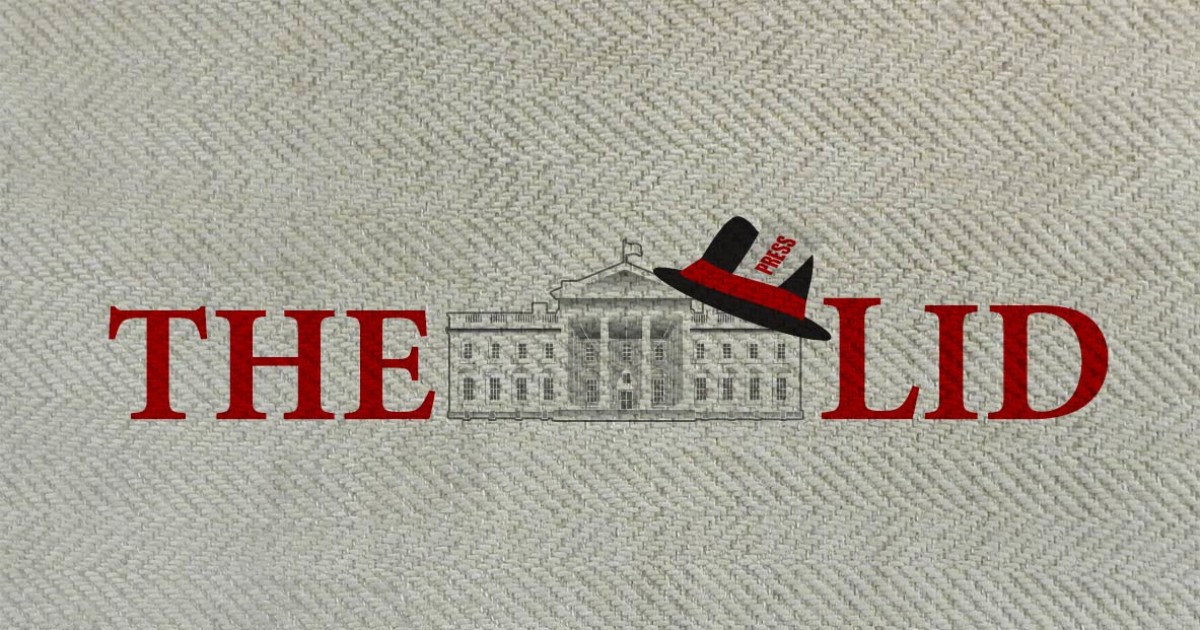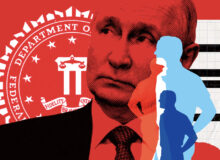The Democrats are going crazy over FBI Director Comey’s decision to reopen the investigation of Hillary Clinton. Many of them claim it goes against FBI and DOJ tradition not to “get involved” in political campaigns. But since JFK was POTUS there have been at least seven DOJ investigations that interfered with, and possibly changed the outcome of political campaigns. The examples below all broke that “not getting involved” tradition.
The first two investigations were announced just before election day in 1992 and may have helped George H.W. Bush lose his bid for reelection. And the Attorney General at the time was William P. Barr who was appointed by Bush #41.
- 1992- Caspar Weinberger/Bush #41 Long before the election Caspar Weinberger was one of 14 Reagan administration officials charged in the Iran Contra affair. When the Iran-Contra Affair broke to the media Bush stated that he had been “out of the loop” and unaware of the diversion of funds. Then just four days before the 1992 presidential election prosecutors brought an additional indictment against Weinberger citing a Weinberger diary entry contradicting a claim made by President George H.W. Bush. As reported in the NY Times:Coming on the Friday before a furious weekend of last-minute campaigning before the election, the indictment was played prominently in television and newspaper reports. Mr. Bush was repeatedly asked about the issue and in the bitter aftermath of his defeat, his supporters singled out the indictment as the event that damaged the President most in the closing hours of the race.On December 11, 1992, Judge Thomas F. Hogan threw out the indictment because it violated the five-year statute of limitations and improperly broadened the original charges. But it was too late for Bush 41.
- 1992 Catalina Vasquez Villalpando/Bush #41- The Treasurer of the United States under Bush #41. Villalpando became the central figure in a criminal probe launched by the Department of Justice. The Probe was announced October 29, a week before Bush’s re-election bid. As reported in the NY Times
Federal agents are looking into accusations that the United States Treasurer received payments from a former employer while in office, Administration officials said tonight.
Treasury Department officials said the Treasurer, Catalina V. Villalpando, whose name appears on United States currency, was placed on an indefinite leave today.
This one is also from 1992 but this time the target was a Democrat:
- 1992-Nicholas Mavroules, (D-Mass) In late August 1992 nine weeks before facing the voters in his bid to be reelected to the Massachusetts’s 6th congressional seat, Mavroules was indicted by a Federal grand jury for extortion and other charges. He first plead not guilty, but six months after he lost his reelection bid he changed his plea to guilty.
This next one happened to the opponent of Bill Clinton’s secretary of housing and urban development, Andrew Cuomo. Here again was a case of a Republican Attorney General (Alberto Gonzales) ruining the election prospects of another Republican.
- 2006- Jeanine Pirro: Pirro was running for the open Attorney General of NY State seat against Andrew Cuomo. Five weeks before the election it was announced that she was under federal investigation for plotting to secretly record her husband over suspicions that he was having an affair, at the time Pirro said that any probe into her marriage was “highly improper.” The Federal probe was eventually closed without Ms Pirro being charged, but after the federal probe hurt her candidacy and possibly cost her the election.
- 2008-Ted Stevens: While the investigation was way before the election…this was a politically motivated case. Ted Stevens Senator (R-AK) was convicted of seven counts of bribery and tax evasion October 27, 2008. He then lost re-election. However the charges were dropped when it was learned that the federal prosecutors committed gross misconduct during the Stevens trial including hiding evidence that would have exonerated him:
…the report ordered by Judge Emmet Sullivan found that federal attorneys prosecuting the late Senator Ted Stevens of Alaska hid “significant exculpatory evidence which would have independently corroborated [his] defense and his testimony, and seriously damaged the testimony and credibility of the government’s key witness.”
That much we know from sections of the report already made public, but several of the offending prosecutors have been trying to prevent the release of the full 500 pages chronicling the extent of their misconduct. Judge Sullivan recently and to his great credit denied their requests and so Americans will see the panorama of abuse.
These prosecutors, working in Justice’s ironically named Public Integrity Section, trampled on Stevens’s rights by ignoring the Brady rule, which requires prosecutors to share exculpatory evidence with the defense. The feds then won a conviction on ethics charges less than two weeks before Election Day in 2008.
- Cornelius Gallagher: NJ Democrat ran afoul of FBI head J.Edgar Hoover, by criticizing Hoover’s illegal surveillance methods on the house floor. Under pressure from Hoover he didn’t run for reelection in 1972, and pleaded guilty to charges of tax evasion which many believe were trumped up by Hoover. (See Official and Confidential: the Secret Life of J. Edgar Hoover, Open Road Media, Jan 17, 2012)
- Thomas F. Johnson indicted Oct. 16, 1962 by a federal grand jury in Baltimore, Md., three weeks before facing voters for re-election. He was charged and eventually convicted of on one count of conspiring to defraud the Government of the impartial operation of the Justice Department and seven counts of conflict of interest. He lost his reelection bid.
Honorable Mentions depending on how you look at it these next two may or may not fit into the above category:
- David Rivera Miami congressional candidate and ex-U.S. Rep. David Rivera was officially named as the target of a federal investigation Tuesday when his friend pleaded guilty to criminal campaign-finance violations in open court (10 weeks before election day)
- Albert Bustamante In April 1992, it was announced that Bustamante was being investigated for fraud and racketeering, which ruined his reputation and he lost his reelection bid. He was convicted in 1993.
There you go…seven cases of the DOJ getting involved in elections (plus two maybes). I am sure more will turn up, the point is when the democrats contend that the reopening of the Hillary Clinton criminal case is some sort of breach of tradition, like most things associated with Hillary Clinton, it is a lie.






